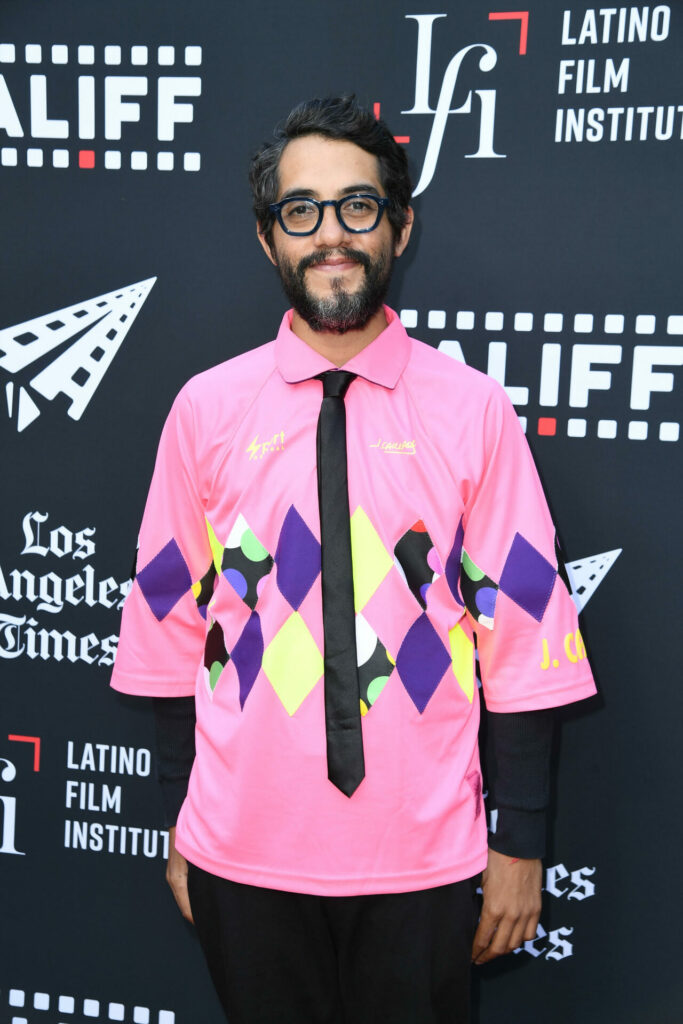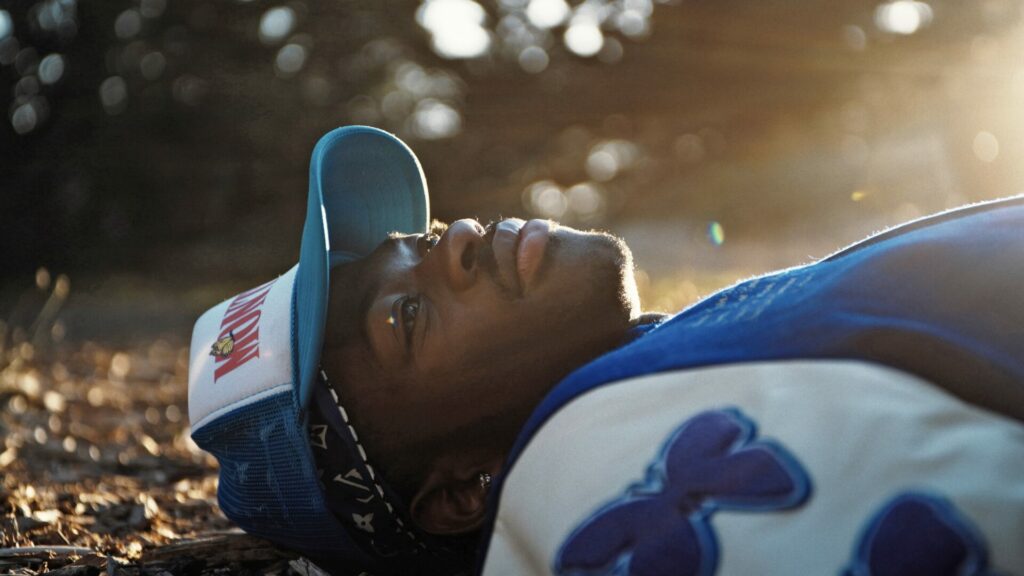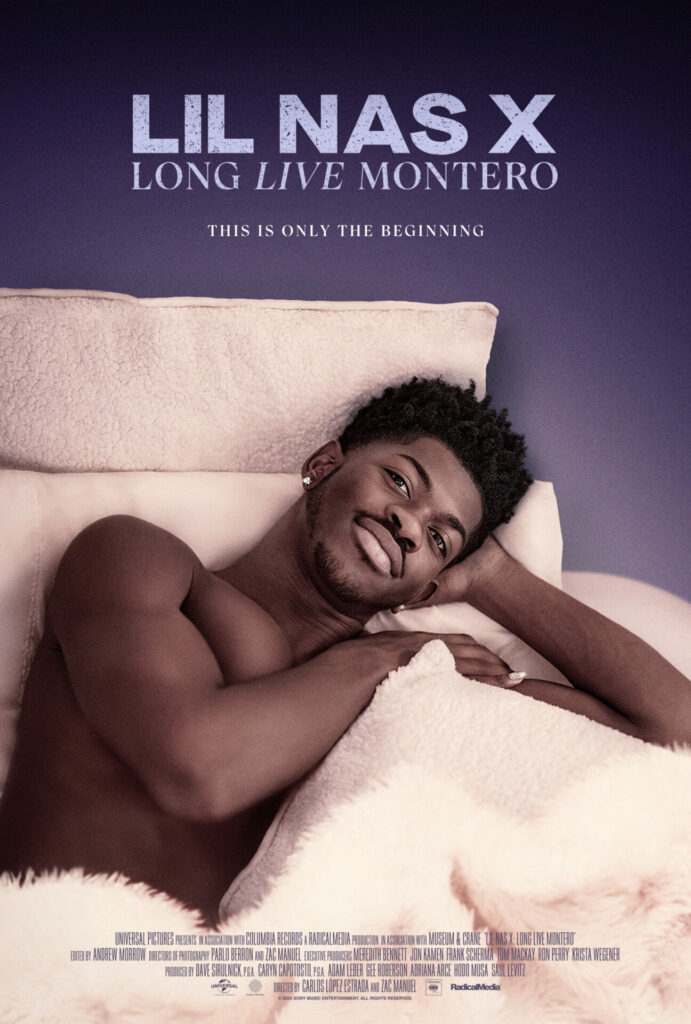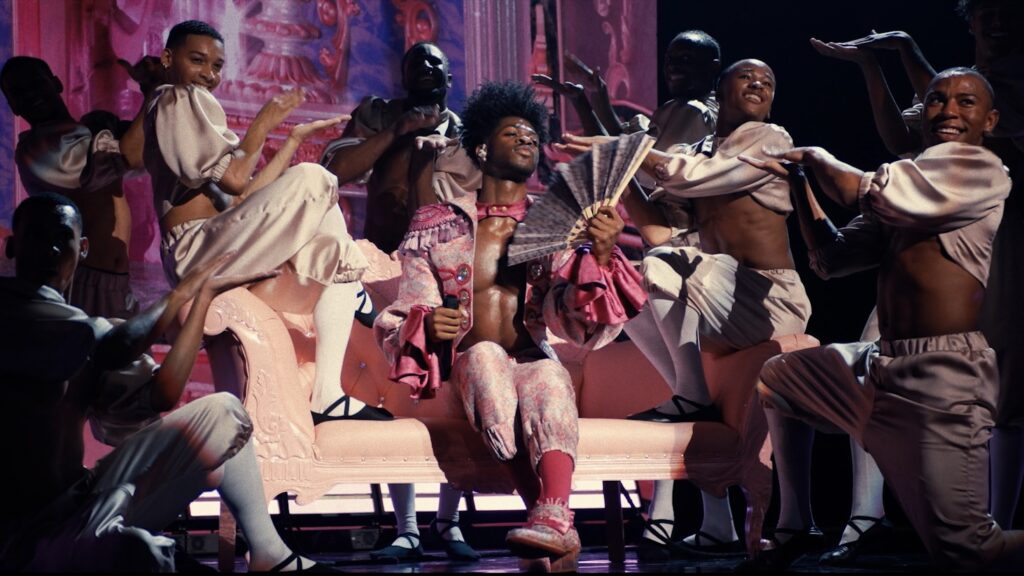Lil Nas X: Long Live Montero makers on showing a ‘vulnerable’ Lil Nas X: ‘He wanted to be real’
Exclusive: "I was so surprised to see his willingness to show himself in an unfiltered way and to not really curate how he wanted to be seen," director Carlos López Estrada has told Attitude

The directors of the documentary Lil Nas X: Long Live Montero have told Attitude that they were surprised to see how open the singer got in the film.
The documentary follows the 25-year-old singer-rapper on his Long Live Montero tour. As well as seeing him put the shows together, the film also shows a softer, more open side to the performer that isn’t seen in his outward persona.
As Attitude wrote in its review of the film when it played at BFI Flare 2024, “What is most charming about the film is the person at its centre. Lil Nas X, confident, energetic, and at times bombastic on social media and in his music, shows off his softer and calmer side here, a side we don’t often see publicly.”
Speaking to Attitude ahead of the film’s release today (Monday 20 May), directors Zac Manuel and Carlos López Estrada explained why they wanted to tell this story, what surprised them most about Lil Nas X, and why they felt including his queer fans was so important.


Carlos, how did you come onto the project?
CLE: I got invited by his label to brainstorm how to shape Lil Nas X’s show. He wanted there to be a lot of theatrics and he wanted it to be story-driven. And then I got a call right before they went on tour saying they wanted to make a film and they had already been working with Zac. They wanted to see if we could work together in capturing not just the tour, but also his experience throughout.
Zac, how was it pitched to you?
ZM: I had moved to Philadelphia from New Orleans a week before I got a call from a producer that I had worked with before, who I really love, Caryn Capotosto. She’s like, ‘I’ve got this project. I can’t really tell you about it.’ I was like, ‘You gotta give me something.’ She’s like, ‘Lil Nas X.’ I was, like, ‘Sign me up! I’ll be there.’ Within a week I was in LA shooting his rehearsal.

How much of it were you able to plan and how much of it was reacting to things?
ZM: It’s a bit of a mixture. I try to get to know a person and the fundamentals of what drives them – let’s get into your house, let’s talk about stuff that’s personal to who you are. It turned out to be the crux of the story because what neither of us were expecting was that he was still grappling with these issues of his family and their acceptance of his identity. It was something that he was still figuring out, how is he going to be as open as he wants to be around the people that he’s grown up with that he’s learned so much from? We latched onto that and knew that could be the soul of the film.
Why was this a story you wanted to tell?
CLE: I admired Lil Nas X as a musician and as a public figure. I was curious to learn more about him, what was behind the music, what was behind this online persona he’s created. The deeper that we got, we got to see the fabric of him as a person, activist, and icon to so many. It became clear that the story that we were telling had the potential to impact a lot of people. People who already looked up to him, but also people who maybe haven’t, and people needing a sense of community. The idea that through this movie, people going through that difficult process of transformation could see themselves and feel more comfortable filled us with purpose.
ZM: That’s a big part of it. Lil Nas X is black, he’s gay, he’s from the South. I’m black, I’m from the South. I feel like depictions of queerness within black masculine spaces are very limited, but the communities are very expansive. What he’s been able to do is carve out a space for black queer artists. For me, it was important to highlight that specific identity, that specific culture, to tell a story about a black man who’s coming into his queerness, figuring it out through his music, but also doing it with a sense of integrity and dignity because he’s very smart. He’s very funny. And there’s hardness. There’s things that are difficult to his story, but I think the way that he communicates those and handles them is very graceful.

What surprised you most about Lil Nas X as a person?
ZM: He’s got this giant wall of memes in his room and in the middle is a picture of Marsha P Johnson. It’s incredible for an artist as young as he is to have the knowledge of queer rights activists who’ve come before him and to highlight that amid all these satirical things. There was a cognisance of the legacy that he comes from within his own identity. I was not expecting that.
CLE: What was most surprising to me was we had got so used to thinking of him as this larger-than-life icon but to learn that he was still just a kid in many ways. Obviously wiser and more mature than most people, but in many ways, this was his coming of age as an artist and it was him facing his audience for the first time, talking about family issues that he had never talked about publicly, introducing the world to his family, introducing the world to some vulnerable places. That was really grounding to know that an artist who’s at that level of fame just wants to talk about the most basic intimate human issues. That, to me, was very refreshing.
Were you both expecting him to be as open as he was?
ZM: I didn’t have a great many expectations going into it, but sometimes you can get a read off a person quickly and within the first couple minutes of meeting him it was like, he’s very thoughtful. Humour always comes from a place of intelligence, I think. It was easy to talk to him. The kind of vulnerability, the space that he opened for us came very naturally.
CLE: I remember the day we first showed him the full cut of the documentary. The first song came up and he got off his seat and started dancing. That showed more than anything his willingness to be vulnerable publicly and to understand that by putting his struggles out on film like this, other people are going to latch on to this experience and use it to go through some potentially difficult circumstances. I was so surprised to see his willingness to show himself in an unfiltered way and to not really curate how he wanted to be seen. He wanted to be real and that’s one of the things that makes the movie so special.

How important was it for you to include Lil Nas X’s queer fans?
CLE: One of the things that we identified as being a key component to Lil Nas X is his relationship with his fans and that he’s used social media to create this direct dialogue between him and them. Zac kept saying how much his shows felt like a religious experience, to see all these people, a lot of them queer, finding community. Including the fans was key to the storytelling here. We invited fans to talk about their relationship with Lil Nas X. We asked about moments when they first learned to understand and accept themselves. Then we invited them to show us what they were wearing and express themselves for a few moments and those became really beautiful celebrations.
ZM: What it opened up was these parallel storylines, not only were fans grappling with issues of identities or transformation, but so was Montero. It was profound to see them going on these journeys at the same time because that’s not something that I anticipated.
